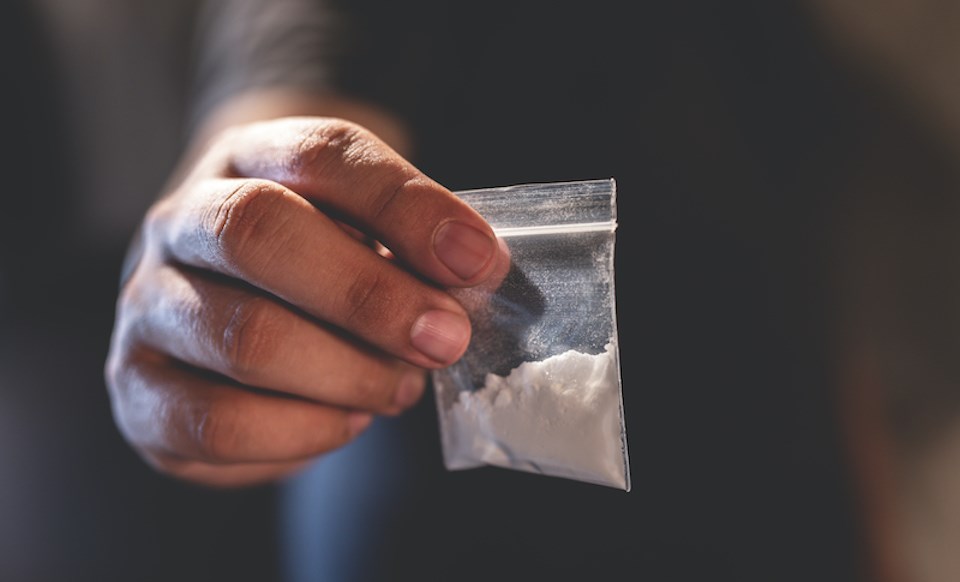“For the love of all that is good, listen to us."
In response to the latest BC Coroners Service (BCCS) data on overdose deaths, on Thursday (June 9), a Vancouver-based drug advocacy group once again handed out free cocaine, heroin, and methamphetamine to people who use drugs at an event in the city.
Illicit drugs continue to claim more B.C. lives than "homicides, motor-vehicle incidents, drownings, deaths by suicide and fire-related deaths combined," according to the BCCS.
In April, nearly 161 British Columbians died from overdose deaths, which works out to roughly 5.4 deaths daily.
The Drug User Liberation Front (DULF) has handed out illicit substances at numerous events in the past months as a way to demonstrate the life-saving potential of a community-led response to the overdose crisis.
And while the B.C. government recently announced that it will remove criminal penalties for people who possess a small amount of certain illegal drugs for personal use, DULF and organizations like it say it won't prevent deaths from a toxic drug supply.
But it isn't only drug advocacy groups who say the only way to solve the overdose crisis is by providing a safe supply.
Many government officials, including Chief Coroner Lisa Lapointe, say a regulated supply of illicit substances is the only way to ensure that people who use drugs are not at risk.
While the use of any drug, including legalized ones such as marijuana and alcohol, can be dangerous, advocates say an unregulated market puts people who use illicit substances at a greater risk of overdose death.
"The reality is that every time someone uses drugs purchased from the unregulated market, their life is at risk," says Lapointe. "Until a safer, regulated supply is widely accessible, I encourage those using drugs to use only in the presence of someone who can provide help and call for medical assistance if that's required."
Fentanyl free: Â鶹´«Ã½Ó³»group tests drugs
Through its "Dope on Arrival Program," the DULF says it has distributed "310 doses of each cocaine, heroin, and methamphetamine, without a single reported overdose, either fatal or non-fatal."
Along with the Â鶹´«Ã½Ó³»Area Network of Drug Users (VANDU), the activist group says providing a regulated supply to people who use drugs provides a model of what a federal exemption would look like from the federal government that allows compassion clubs to operate in the city.
"The response from all levels of government remains reprehensible," says the group. "While they continue to tout ‘achievements’ such as decriminalization, a policy that will increase market instability due to refocused enforcement up the drug supply chain, more of our friends, family, and loved ones continue to die.
"We once again ask that they either act to regulate the drug supply or get out of our way."
On May 31, the provincial government announced it will grant a three-year exemption under the Controlled Drugs and Substances Act (CDSA) for adults 18 and up who possess 2.5 grams or less of certain illicit substances for personal use — but experts say the exemption is largely political and will not prevent rising numbers of deaths.
Find out why advocates call B.C.'s new drug policy a "zombie exemption."




